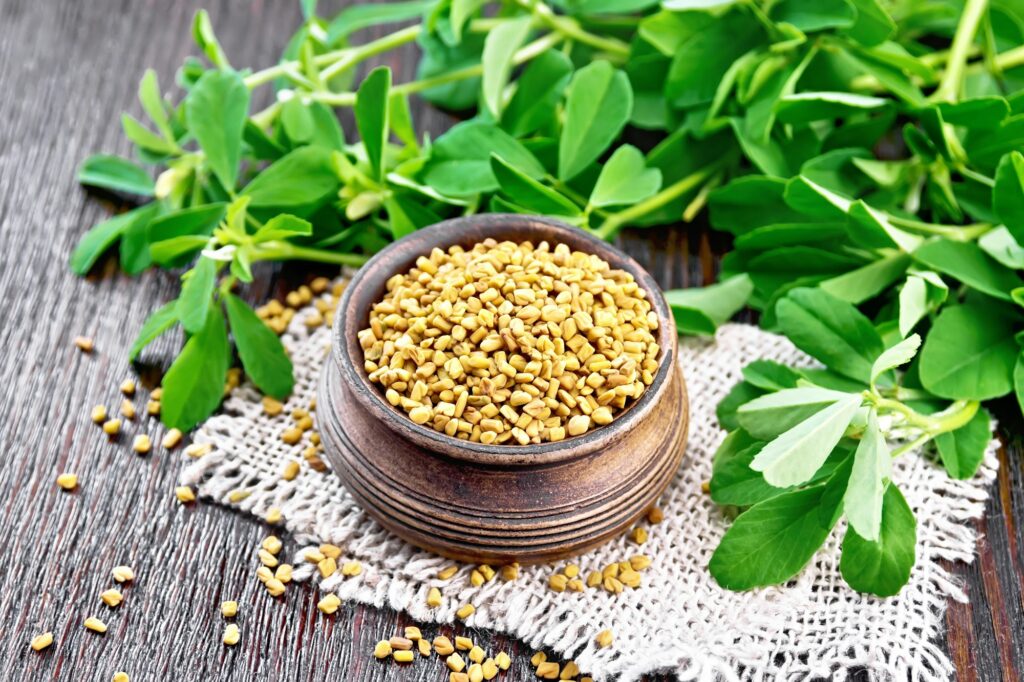The pictures in our articles might not always show exactly what the text is talking about. We use these images to make the article more interesting and eye-catching. They are there to add to the text, but not to replace it or show every detail.
Introduction
Fenugreek, an ancient herb with a rich history, has been captivating the attention of health enthusiasts and culinary experts alike. This remarkable plant, known scientifically as Trigonella foenum-graecum, has been a staple in traditional medicine and cuisines across various cultures for centuries. From its distinctive maple-like aroma to its potential health benefits, fenugreek is a treasure trove of fascinating facts that continue to intrigue researchers and consumers.
In this comprehensive guide, we'll explore the most interesting facts about fenugreek, delving into its nutritional profile, health benefits, culinary uses, and more. Whether you're a health-conscious individual looking to expand your knowledge of natural remedies or a food enthusiast eager to discover new flavors, this article will provide you with valuable insights into this versatile herb.
Key Takeaways
- Fenugreek is a nutrient-dense herb with a rich history in traditional medicine and cuisine
- It may offer various health benefits, including blood sugar control and cholesterol management
- The herb is widely used in Indian, Middle Eastern, and North African cooking
- Fenugreek can be consumed in various forms, including seeds, powder, and supplements
- While generally safe, fenugreek may cause side effects and interact with certain medications
10 Intriguing Facts About Fenugreek

1. Nutritional Powerhouse
Fenugreek seeds are packed with essential nutrients. A single tablespoon of fenugreek seeds contains 3g of fiber, 3g of protein, and significant amounts of iron, manganese, and magnesium. This nutritional profile makes fenugreek a valuable addition to a healthy diet.
2. Blood Sugar Regulation
One of the most promising facts about fenugreek is its potential to help regulate blood sugar levels. The high fiber content, particularly galactomannan, may slow sugar absorption and improve insulin sensitivity, making it a subject of interest for diabetes research.
3. Breastmilk Production Booster
Some studies suggest that fenugreek may increase milk production in breastfeeding mothers. This potential benefit has made fenugreek a popular natural remedy among new mothers looking to enhance their milk supply.
4. Cholesterol Management
Fenugreek facts related to heart health are particularly intriguing. Research indicates that fenugreek may help lower cholesterol and triglyceride levels, potentially contributing to improved cardiovascular health.
5. Testosterone Support
Interestingly, some research suggests that fenugreek might boost testosterone levels and improve muscle strength in men. This has led to its inclusion in some sports nutrition supplements.
6. Digestive Health Aid
The high fiber content in fenugreek can aid digestion and may help alleviate constipation. This makes it a natural choice for those looking to improve their gut health.
7. Anti-inflammatory Properties
Fenugreek contains compounds with potential anti-inflammatory effects. This property has sparked interest in its use for managing various inflammatory conditions.
8. Culinary Versatility
In the culinary world, fenugreek facts highlight its versatility. The seeds and leaves are used in various cuisines, particularly in Indian, Middle Eastern, and North African dishes. It's also a key ingredient in many spice blends.
9. Maple Syrup Aroma
One of the most unique facts about fenugreek is its distinctive maple syrup-like aroma. This is due to a compound called sotolone, which has led to fenugreek's use in creating imitation maple syrup flavoring.
10. Ancient Medicinal Use
Fenugreek has been used in traditional medicine systems for centuries, including Ayurveda and Traditional Chinese Medicine. Its long history of use for various ailments underscores its perceived value in natural healing practices.
The Nutritional Profile of Fenugreek
Understanding the nutritional content of fenugreek is crucial to appreciating its potential health benefits. Here's a detailed look at the nutrient composition of fenugreek seeds:
| Nutrient | Amount per 100g | % Daily Value per tablespoon |
|---|---|---|
| Fiber | 24.6g | N/A |
| Protein | 23g | N/A |
| Iron | 33.5mg | 21% |
| Manganese | N/A | 6% |
| Magnesium | 191mg | 5% |
| Phosphorus | N/A | 3% |
| Vitamin B6 | N/A | 3% |
This nutrient-dense profile makes fenugreek a valuable addition to a balanced diet, potentially contributing to overall health and well-being.
Health Benefits of Fenugreek
The potential health benefits of fenugreek are numerous and diverse. Here are some of the most notable facts about fenugreek's health benefits:
While these potential benefits are promising, it's important to note that more research is needed to fully understand and confirm many of these effects. Always consult with a healthcare professional before using fenugreek for medicinal purposes.
Culinary Uses of Fenugreek
One of the most interesting facts about fenugreek is its widespread use in various cuisines around the world. Here are some ways fenugreek is used in cooking:
Its distinctive bitter-sweet flavor and aroma make fenugreek a valuable ingredient in many kitchens, adding depth and complexity to a wide range of dishes.
Forms and Preparation of Fenugreek
Fenugreek can be consumed and used in various forms, each offering unique benefits and applications:
The versatility of fenugreek in terms of its forms and preparations makes it accessible for various uses, from culinary applications to potential health and beauty benefits.
Potential Side Effects and Precautions
While fenugreek is generally considered safe for most people, it's important to be aware of potential side effects and precautions:
As with any supplement or significant dietary change, it's crucial to consult with a healthcare professional before incorporating fenugreek into your routine, especially if you have underlying health conditions or are taking medications.
FAQ About Fenugreek
What is fenugreek used for?
Fenugreek is used in cooking as a spice and flavoring agent, and in traditional medicine for various health purposes, including blood sugar control and digestive health.
Is fenugreek safe to consume daily?
While generally safe for most people, it's best to consult with a healthcare professional before consuming fenugreek daily, especially if you have underlying health conditions.
How does fenugreek taste?
Fenugreek has a distinctive bitter-sweet flavor with a maple syrup-like aroma due to the compound sotolone.
Can fenugreek help with weight loss?
Some studies suggest fenugreek may aid in weight loss by promoting feelings of fullness, but more research is needed to confirm this effect.
How should fenugreek seeds be stored?
Fenugreek seeds should be stored in an airtight container in a cool, dry place away from direct sunlight to maintain their freshness and potency.
Conclusion
Fenugreek is truly a fascinating herb with a wealth of potential benefits and uses. From its rich nutritional profile to its diverse applications in cuisine and traditional medicine, the facts about fenugreek presented in this article highlight its value as a versatile and potentially beneficial plant.
While more research is needed to fully understand and confirm many of its purported health benefits, fenugreek's long history of use and ongoing scientific interest suggest that it may have much to offer in terms of nutrition and health. As with any supplement or significant dietary change, it's important to approach fenugreek use with caution and consult with healthcare professionals when necessary. Whether you're intrigued by its potential health benefits or simply curious about its culinary applications, fenugreek is certainly an herb worth exploring further.






